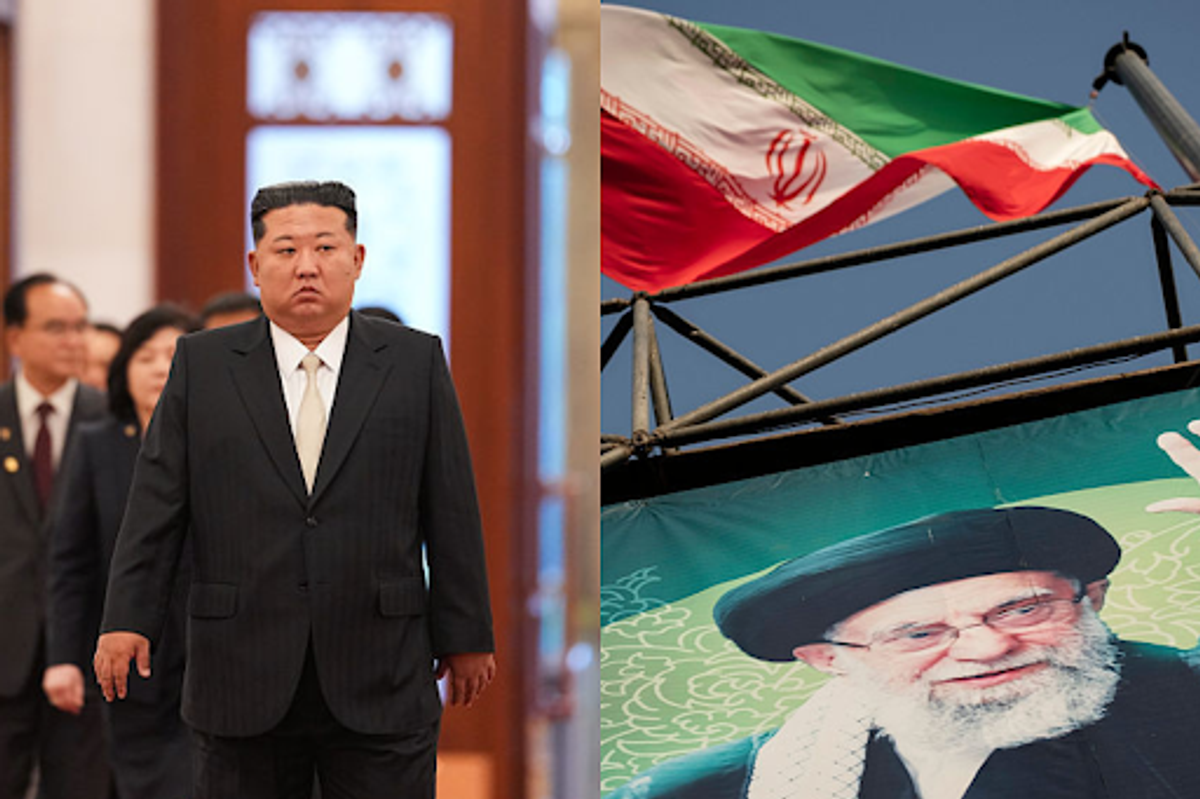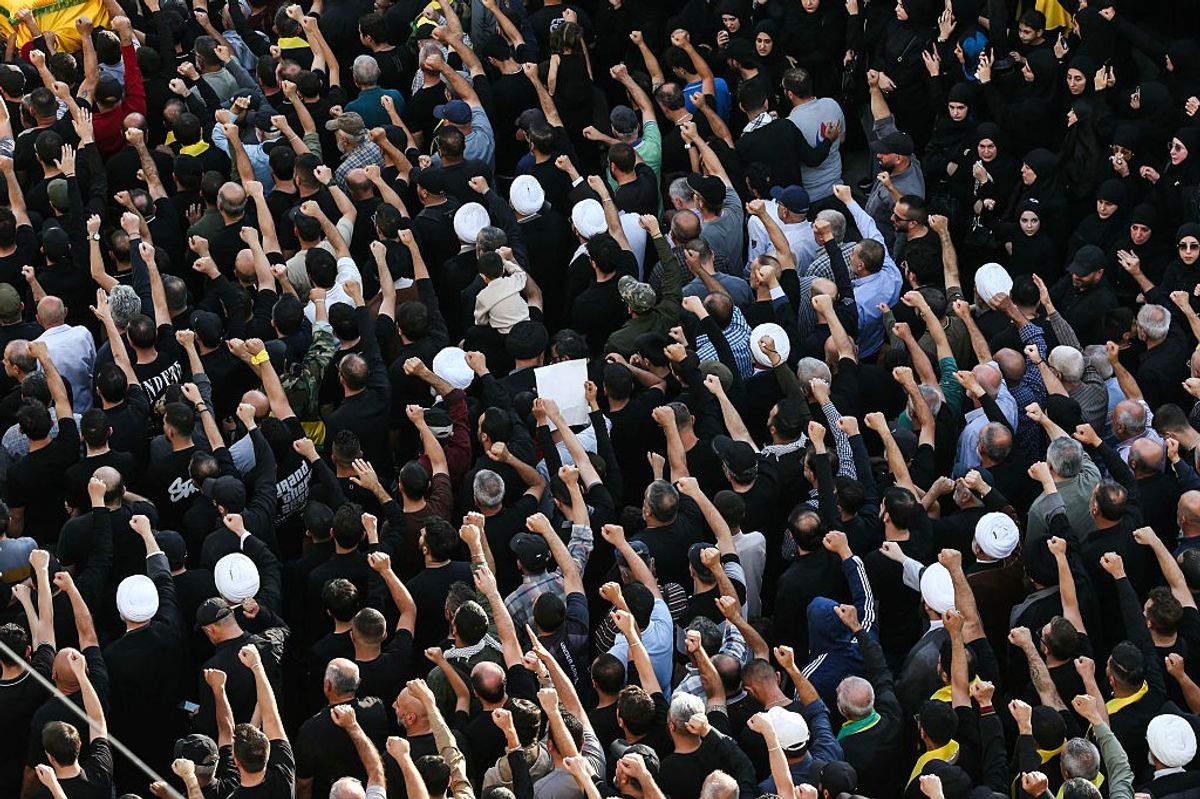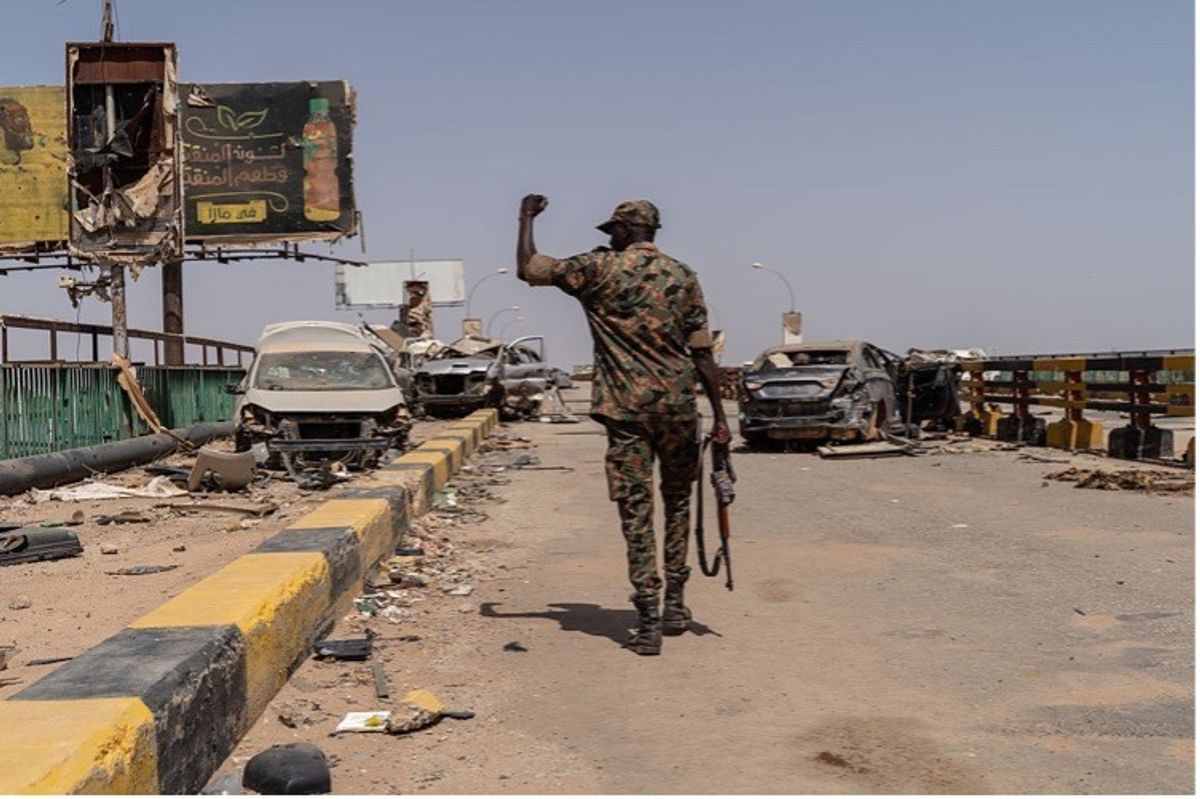BOTTOM LINE UP FRONT — In the week since Syrian rebels captured the capital, Damascus, ending the half-century rule of the Assad family in stunningly rapid fashion, there has been a mix of post-rebellion chaos and signs of an orderly transition.
On the one hand, leaders of the rebellion have met with former government officials and chosen a transitional leader. They have tried to ensure that basic services, in particular banking and local police, are continued. Some of the most notorious prisons where the former regime kept its political enemies have been emptied, and Syrians across the country and around the world have rejoiced over a revolution that one month ago would have seemed unthinkable.
But along with the euphoria have come grave concerns about Syria’s next chapter — the potential for clashes among rival factions, the possibility that terrorist groups will find safe haven in a power vacuum, and the potential for conflict among other nations vying for influence in the post-Assad era.
Cipher Brief experts have weighed in to help us understand the moment, and the challenges it brings, for Syria and the broader Middle East. One week after rebels took the capital, a half dozen members of our expert network assess what some call “a great opportunity,“ others “a dangerous point,” and the myriad geopolitical ripple effects of the rebellion that may be felt for a long time.
THE CONTEXT
- The rebellion brought an end to Syria’s 13-year-long civil war, and to 53 years of Ba’ath Party rule under the Assad family.
- A coalition of rebels led by the group Hayat Tahrir al-Sham (HTS) launched a surprise offensive from northwest Syria on November 27. Three days later, the rebels took Aleppo, Syria’s second-largest city. On December 8, the rebel groups reached Damascus, and overthrew the regime.
- President Bashar al-Assad fled to Moscow, where he was granted asylum.
- HTS is led by Abu Mohammed al-Golani. When it was formed more than a decade ago, the group was made up Syrians who fought with Al-Qaeda against U.S. forces in Iraq. HTS said several years ago that it had renounced its ties to the Islamic State and Al-Qaeda and was interested only in overthrowing the Assad regime. The U.S. still lists HTS as a terrorist organization.
- Roughly 48 hours after Assad’s ouster, the rebels named Mohammed al-Bashir, who ran the HTS de facto government in Syria’s northwestern Idlib province, as the country’s caretaker prime minister. He has pledged to lead an interim government until March 1, 2025. The new leadership says it is dissolving the Assad regime’s security forces and closing many of its prisons.
- Many nations in the region cheered the news of Assad’s fall. Turkey has long supported Syrian rebels, especially the HTS. Israel – Syria’s sworn enemy for decades – has attacked several Syrian military sites since the rebellion.
- Russia, Iran and Iran’s proxy militia Hezbollah – each of which had been key supporters of Assad – offered no significant support as the rebels marched to Damascus, and now their influence in the country is at risk. Russia’s military presence in Syria, including a critical naval base and a few air bases, is in question, though sources say Moscow may be nearing agreement with the new Syrian leadership to maintain some assets at its Tartus naval port and Khmeimim air base. Iran has lost its land route to supply Hezbollah in Lebanon – the latest blow to Tehran’s security standing in the region.
- The U.S. and other Western partners are urging the new Syrian leadership to form an inclusive, non-sectarian government that protects minorities and women’s rights. U.S. officials have also expressed concerns of an Islamic State resurgence, especially since thousands of ISIS fighters remain detained in northeastern Syria.
THE EXPERTS
After Assad, an “extraordinary opportunity”
Amb. Grappo: The United States, moderate Arab countries, Turkey and Israel…all of those countries have been handed an extraordinary opportunity. Iran and Russia have abandoned [Syria]. There’s an opportunity to move Syria into the camp of moderate Arab states, which is what we should strive for. It would be naive to try and foist a Jeffersonian democracy on a country that has absolutely no familiarity or history with democracy, but certainly a country that fosters stability within the country as well as in the region – that should be our objective.
Stavridis (to MSNBC): Just look at a map. If you think of it as that old game of Risk we played as kids – poof, goes the bridge that runs from Iran over to Syria into Lebanon to the Mediterranean Sea. Poof, go the Russian bases on the Mediterranean, the warm weather port that they have cherished the ideal of for so long. Their ability to operate in that eastern Mediterranean, gone overnight. All of this is a remarkable twist of fate.
And let's not underestimate the rise of a charismatic leader. I think a lot of folks are getting to know [the HTS leader] Abu Mohammed al-Golani. Learn that name, and we'll see where this goes. Is this going to be a new awakening, as we all hope?
Amb. Jeffrey: We are looking at a dramatic strategic victory for the U.S. This is a huge victory for the West, the culmination of a dramatic turn of events in the region since [the] October 7, 2023 [attacks against Israel]. The Iranian axis in the region has been collapsed only by great good luck - first by Israel, and now Turkey and the Syrian opposition. Job one is to celebrate, and learn from that and insure that Tehran doesn't reconstitute.
Fears of civil war - and terrorism
Gen. McKenzie (to ABC News): I'm not sure it's ultimately going to be good news for the people of Syria. You know, we could have an Islamic State arise there which will have profound negative implications across the region. That is possible.
For sure it's a significant moment in Syrian history. I wish I could be more hopeful that it will mean good news for the Syrian people. I think that's very unclear right now.
Amb. Grappo: I am concerned. It is true that al-Golani appears to have taken a more pragmatic approach over the last five to 10 years, during his leadership of HTS in Idlib province, trying to dampen some of the more extremist elements of Islamism that they had previously followed under both the Islamic State as well as Al-Qaeda. And some initial signs suggest that he has followed up on that. He’s issued warnings and announcements about respecting Christians, the Alawites, the Kurds, et cetera.
HTS and the other groups that fell under this large collection of rebels were all united in their objective of removing the Bashar al-Assad regime. Well, they’ve done that. And what typically happens in circumstances like this – we’ve seen it before – is that the centrifugal forces driven by desires for power, for wealth, to claim their share of the spoils, create the basic elements of another civil war.
There are other armed factions that were not part of this movement. There are the Syrian Democratic Forces (SDF), principally the Kurds up in the Northwest. There is the Syrian National Army, which is basically a militia group that’s armed and backed by Turkey, which controls areas along the northern border with Turkey. And then we have smaller militia groups down in the south that had been supported by Jordan.
Mounting a war against a dictator like Assad, and uniting forces behind that, is comparatively easy compared to forming a government. So now is the hard part. We’re at a dangerous point.
Doyle: First, will [the rebel forces] be able to form an acceptable government in Damascus that rules over all of Syria, or will eastern and southern Syria operate under other forces?
Second, can the rebels gain countrywide control without the support of Turkey, Iran, Russia, Israel, and other anti-Assad groups - especially ethnic Kurds? To what extent will the latter actors ignore the rebels in order to achieve their own regional objectives?
Third, the prolonged Syrian civil war and counter-ISIS operations gave Russia, and Iran and Hezbollah, two excuses to position and retain air and naval military bases and combat forces a few short miles from the Turkish border. Their presence protected Assad for over a decade, but their military operations betrayed their real goal: they persistently attacked U.S., NATO, and other U.S.-led coalition forces. Will the rebels in Damascus have enough power to break long-term military basing agreements with Moscow and Tehran and expel their personnel? Will the rebels refrain from attacking Israeli forces in Syria? The answers to these questions are vital to U.S. and NATO interests.
Gen. McKenzie: Our troops east of the Euphrates River paired with our SDF partners are there to keep a lid on ISIS and prevent violent extremist organizations from gathering strength and being able to attack the homeland of the United States.
ISIS aspires to attack us. As we know, ISIS launched a successful attack against Russia just a few months ago. That's why those troops are there. So any decision to bring them out, we'd need to weigh that going forward, and I'm certain that the new administration will take a hard look at that when they come into office.
I think actually there's probably less danger right now than there was before, because what you see are the Iranians, Hezbollah, and the Russians are all on their back heels now as a result of what has just happened in Syria. One of the best equipped, best trained, and most capable forces in all of Syria today is actually our Kurdish partners east of the Euphrates River. They'll be able to defend themselves. I'm confident of that.
Amb. Jeffrey: As our foreign policy specializes in nail-biting, let me take a contrarian view of jihadis overrunning Syria. Possible? Sure. Likely? No. I dealt indirectly with al-Golani as Syria envoy, and he really did seem to be reformed.
We concluded after 9/11 that rather than declare “once a terrorist, always one” we would “welcome” those who genuinely renounced terrorism. This was much of the political logic of [Gen. David] Petraeus’ surge.
The ripple effects
Corn: This is a big win for Turkey in one way, because a lot of Syrian refugees can return. There's a lot of pressure on the Turkish government – which hosts the number of Syrian refugees, the largest number in the world. The largest number per capita is in Lebanon, but the largest number is in Turkey, which was a big political issue and put pressure on the economy of Turkey. Now they can start returning home.
The Israelis now are probably concerned that Turkish-supported groups are right on the Israeli border. And of course, we should look at Lebanon, because now the Lebanese are also concerned that they could have more extremist activity on their border with Syria. In fact, they're already redeploying their troops from the LAF [Lebanese Armed Forces], which is already an organization which has limited numbers, to the northern border to secure the border.
Amb. Grappo: I’m worried about Turkey and, to a lesser extent, Israel, perhaps trying to take advantage in the border areas. We’ve seen Israel do some things already [attacking Syrian military targets]; clearly it was in their security interest to take those measures. They’re now temporarily occupying Syrian land they’ve never claimed before, to the east of the Golan Heights. And that may be understandable during this uncertain period, but at some point they need to make clear that they are going to withdraw. And similarly, the Turks have to make clear that they have no claim on Syrian territory. Then a really hard thing for Turkey will be finding a way to work with the Kurds of Turkey.
Doyle: Events that are unfolding in Damascus unambiguously will not just stay in Damascus.
Don’t underestimate the Turks. Their plans, intentions, and goals with Damascus remain deeply intertwined with the PKK [the Kurdistan Workers Party], and its terrorist network in Syria. The U.S. remains entangled in a misguided relationship with the PKK – whose sole mission is to attack and undermine Turkey - which is unsustainable, indefensible, a violation of US law, and an immutable thorn in bilateral US-Turkish relations.
Gen. McKenzie: [Russia, Iran and Hezbollah] all placed a bet on Bashar Assad, and that bet has turned south for them. Russia's interest is maintaining its air base and naval base in the eastern shores of the Mediterranean. So they're going to try very hard to keep that base with whatever entity comes into power in the wake of Assad's departure.
The Iranians need Syria as a land bridge so that they can move equipment into Lebanon in order to threaten Israel. They're going to be very concerned about that, and of course, Hezbollah has also propped up the Syrian regime for many years.
For all three of these entities, this is bad news because they had a partner, not necessarily a good and capable partner, but a partner, and he is gone. He's left the stage so they're going to have to negotiate with who comes in. So it's bad news for them.
Stavridis: This has got to be a moment of real concern for Vladimir Putin. Not only does he now have to take in Assad as this now vagrant, coming with his family on bended knee to Moscow, but more importantly it's Russian prestige globally that takes a real hit here. It’s the damage to the brand. I think you'd have to go back to Yevgeny Prigozhin’s ill-fated attempt to topple Putin a year or so ago to see how difficult this moment will be for Putin. As I look at the hand of cards Putin has, going into what I think everybody increasingly presumes will be a negotiation with Ukraine sometime in 2025, this is a sign of real weakness for Russia. That's good news for the United States, alongside what we see from the weakening of Iran.
What comes next
Gen. McKenzie: I think what you're going to see is a period of infighting. [HTS will] hold the capital. They'll try to establish themselves. They'll try to seek recognition. Russia will try to work their way back into their good graces. Iran will do the same. I think Israel will be concerned about the possibility of attacks across the Golan.
Stavridis: I think if you run the numbers, 25% chance it turns out really well and there's a secular country [that] emerges; 25% it shuts down pretty quickly as jihadists take over; maybe a 50% chance it looks like Libya, which is an ongoing state of conflict. [It’s] all just too soon to tell, but bottom line: It is confusion for our enemies and success, at least for the moment, for the democratic side of things.
Doyle: The current and incoming American administrations have an opportunity to set new, decisive, and winning U.S. policies regarding the next government of Syria; end our relationship with the PKK and reset relations with Turkey – the only NATO ally that shares a contiguous border with Syria, Iraq, and Iran, and a long Black Sea shoreline with Russia. This is not complicated or hard – unless someone decides to make it hard or complicated.
Corn: Syria is going to need a lot of reconstruction. Who's going to be willing to do that? People are going to look to the Gulf states, of course, to bankroll that. [They will] probably look to the U.S. Russia's not going to pay for the rebuilding of Syria. Iran's not going to pay. So who's going to be able to do that? And of course, we have an interest in seeing some reconstruction if we want stability.
Amb. Grappo: At this initial stage, it’s very hard to see how things are going to play out tomorrow, much less next week, next month, the ensuing months. I think al-Golani will certainly have his hands full in trying to get some of these other groups to not necessarily lay down their arms, but to stop fighting one another. This could break down into a civil war that would be in no one’s interest. And moreover, it would create conditions for the return of players we really don’t want to see - i.e. Hezbollah, Iran, Russia, and perhaps the Islamic State.
But we have the possibility to incentivize a new leadership in Damascus. The various estimates for needed humanitarian aid and investment to rebuild a very devastated country are on the order of $200 billion. If there’s going to be any chance of attracting that kind of investment and support, Turkey, Israel, moderate Arab states, the United States, and the Europeans are the ones who can do it. And they should lay down some pretty clear conditions on what they expect in terms of governance inside Syria and its external behavior.
Read more expert-driven national security insights, perspective and analysis in The Cipher Brief.














